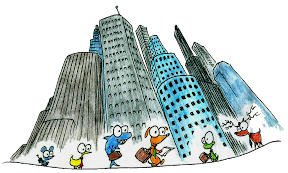

|
|
![]()
Written by | Arificial Intelligence
If there is one thing which is more unreliable, inconsistent and haphazard than the Pakistani Cricket team, then it would be a digital item. It takes on average a digital item only 2 weeks to give-in to the laws of entropy. It appears that part of the blame lies on China's shoulders.

There are a number of Digital Entitites which have disappointed us completely. Here are the top 4.
1. Windows XP
Nowadays, the extent to which a person uses his PC is measured in the number of XP installations he has had over the last month.
2. Motorolla Razr

After a year of use, the 202 dollar Motorolla fails to read the SimCard and finally freezes. Dejected, my poor uncle says, "Hello Moto".
3. Rechargeable Batteries

My new energizer batteries last 10 minutes on the palmtop, and 3 snaps on the Kodak camera.
4. Electricity
I am transferring some timeless pictures from my camera to the computer, using the cut and paste option, instead of copy and paste; so that I don't have 2 copies at the end of the transfer. Poof, the centre of the digital revolution, electricity, has just left our town.
When Electricity returns, I find that my 'timeless' pictures have become a part of unwritten history, that is, the pictures are neither in the camera, nor in the computer.
The digital revolution has become just another myth. Everybody is saying that it has arrived, but it has actually not. What we have seen at the moment could be summed up, in most generous words, as
'The Trailer of The Digital Revolution.'
Coming soon in your City.
Digital Yet Stable.
But then there are exceptions. Take a Nokia phone, a very robust device. Drop it from the second floor of your appartment, and it would be still working; displaying the available network signal, the battery dots and time as if nothing had happened. Next in line are Tvs and Radios, which are more or less stable devices, regardless of their brand or nationality. Reliable are also, the Printers, Casio Calculators and wrist watches.
The Promises
A: Internet
"Where is the promised 'sea of information'?

Except for a select few websites which are information oriented, the rest of the world wide web (boasting 108, 810, 358 websites, according to the Netcraft Web Survey) is anything but educational. Hence today we connect to the internet for access to
- hilarious (read disgusting) videos,
- 63.2 million self centered websites (called Blogs)
- forums for socializing (read harassing).
B: Paperless Office and Home
This was one of the biggest lies of the last century made by the computer industry. Instead of disappearing, paper seems to have multiplied in our workplace. Laser printers, allowing cheap and quick prints are to be blamed. Entire product manuals are recklessly printed, where only a paragraph of reading would have sufficed. Also, paper is still preferred because it is a 'chore' to the eyes and the brain to read from the computer monitor.
So to save ourselves the headache, we get printouts instead.
C: Mobile Phones
 Enter the forest. Walk through the trees. Observe the wildlife, listen to the calm, and whoops. You are lost, and you may now live to become a part of the best seller, The Jungle Book II. Only one thing can save you; your mobile phone.
Enter the forest. Walk through the trees. Observe the wildlife, listen to the calm, and whoops. You are lost, and you may now live to become a part of the best seller, The Jungle Book II. Only one thing can save you; your mobile phone.
You take it out and dial your mother/sister/wife's number to get help. Three seconds have passed since you pressed the green call button, but there is no dial tone to be heard. You may keep that phone on your ear for another 57 seconds, but you would hear nothing. This is because:
"Your cellular service is currently unavailable in this area."
Doesn't this beat the very idea of the mobile phone; mobility. Why are cellular networks restricting our mobility?
A: Easy Searching
 The digital revolution has cut down our searching times by a third. On an average it takes 0.26 seconds to search a term in Google. Especially when you are spot-on with your spelling, you would get to the search result instantly, no matter how rare the term you have searched for is. Thanks to the internet, doctors are now able to research on rare diseases along with the widely common ones.
The digital revolution has cut down our searching times by a third. On an average it takes 0.26 seconds to search a term in Google. Especially when you are spot-on with your spelling, you would get to the search result instantly, no matter how rare the term you have searched for is. Thanks to the internet, doctors are now able to research on rare diseases along with the widely common ones.
A 2 minutes call is all it takes to track down an ambiguous address, or a hiding friend. Warning: Some tricky techniques required.
B: Mass Communication
Courtesy of the digital revolution, mass communication has been made a reality. M
 essages are being sent at the speed of light from one corner of the planet to the other at the speed of light.
essages are being sent at the speed of light from one corner of the planet to the other at the speed of light.
Nowadays, doctors use SMS to confirm their diagnosis with fellow doctors. E.C.G reports, X-Rays and MRI reports are discussed with highly experienced doctors via e-mail, or through a simple MMS.
- In 2007 a total of 1.9 trillion messages were sent.
- Short Messaging Service was invented during the 1980s as a method of communication for engineers building the mobile network. Since its introduction in 1995 it has taken the world by storm.
- 95% of all text messages are delivered within 10 seconds.
- 23% of world-wide mobile users use SMS more than once a day.
- The first text message was sent in 1992.
But there is a downside to this speed of light communication. Rumors spread like wildfire. So many times a political leader has been claimed dead by speculating FM Channels and forwarded SMSes; creating widespread panic and unneeded chaos.
Last Words
................................................................................... ......
......
How do you see the Digital Revolution?
How was the writer's analysis?
What is your favorite digital item? (No wish lists please, quote only those which you use).
blog comments powered by Disqus
 home
home
